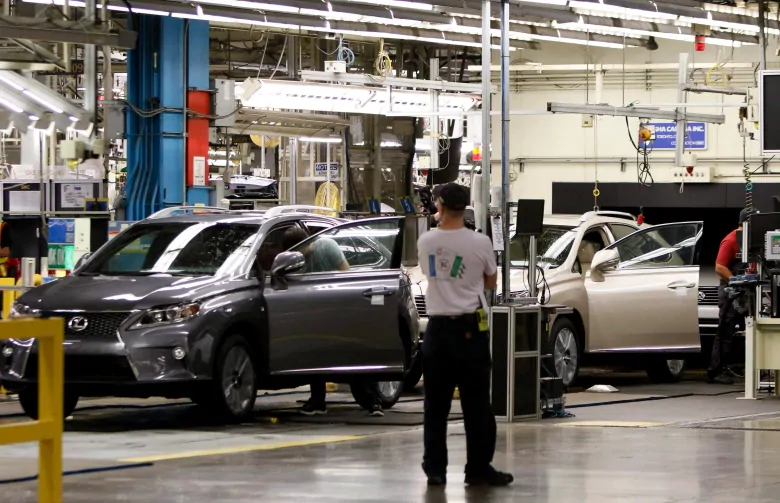Thousands of Ontario auto workers are returning to work this month, resuming their places in the supply chain as the North American industry’s ecosystem slowly wakes from its COVID-19 coma.

Thousands of Ontario auto workers are returning to work this month, resuming their places in the supply chain as the North American industry’s ecosystem slowly wakes from its COVID-19 coma.
Their road ahead won’t be easy. Assembly lines face new health and safety concerns. The market they serve is sputtering. And a massive regulatory shift lies ahead, with the new North American trade agreement set to take effect on July 1.
North American-built cars are products of multiple jurisdictions. While the Ontario government called the shots on the return of other workplaces, the timing of this restart was decided in Detroit and Tokyo — and then complicated at the last minute by some confusion in Mexico City.
“Across North America, there were a patchwork of orders about what was essential and what wasn’t,” said Kristen Dziczek, vice-president of industry, labour and economics at the Center for Automotive Research in Ann Arbor, Michigan.
Ontario had automotive manufacturing on its list of “essential” workplaces, so it was able to respond whenever the rest of the supply chain was ready. (That’s also what enabled some manufacturers to pivot to producing face shields, masks and ventilators.)
Ontario’s Toyota and Honda facilities started calling workers back during the week of May 12. Last week, thousands more joined them at Fiat Chrysler, Ford and General Motors facilities. The union Unifor reports 5,560 union members are back on the job this week at Ontario’s five “Detroit 3” plants, and more will be returning for additional shifts later in the restart process.

Detroit automakers originally wanted to bring their plants back on May 4, but the severity of the pandemic in key states like Michigan required a two-week delay at the U.S. facilities.
At first, Mexico’s president was agreeing to reopen in line with American automakers. But then its health ministry wanted a delay until June 1 — which threw a wrench into the restart again, as most North American cars have Mexican components. In the end, exemptions were granted to Mexican plants with safety protocols in place.
“The supply chain is everywhere, so if there’s a disease outbreak or surge in an area, that’s going to cripple manufacturing elsewhere,” Dziczek said. “I think we’re going to see hotspo

